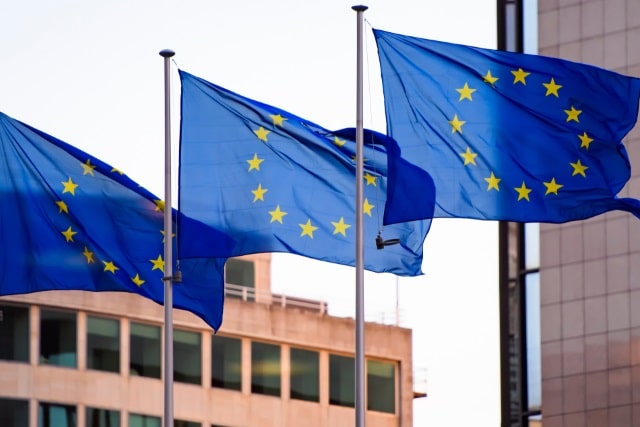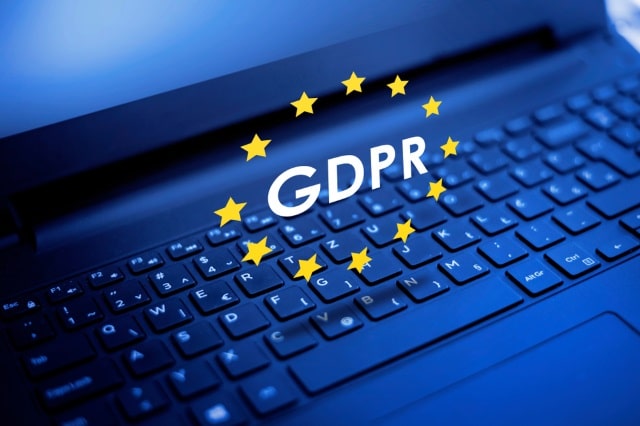
The cyber threats to 2024's elections
With many countries around the world holding elections this year, Tidal Cyber has released a new report looking at the threats to global elections and offering insights on prioritizing defenses against top adversaries and election interference tactics, techniques, and behaviors.
The report identifies the top ten countries facing the highest election cyber interference threats this year as: the US, the UK, South Korea, India, Belgium, Pakistan, Belarus, Mexico, Georgia, and Indonesia.

The good, the bad and the scary of AI -- all in one week
AI has been very much top of the agenda this week. We've had President Biden's executive order on AI, we've had the AI Safety Summit in the UK, we've even had Collins Dictionary choosing AI as its word of the year (not to be confused with the three-toed sloth beloved of Scrabble players).
Today we also have new research from SnapLogic looking at how generative AI is being used, viewed, and adopted within large enterprises.

How the EU's new AI Act will affect businesses [Q&A]
The European Union first proposed introducing a regulatory framework for AI back in 2021, the wheels of politics inevitably grind slowly, however, and it's still working on legislation to bolster regulations on the development and use of artificial intelligence.
The proposed Artificial Intelligence Act has sparked a good deal of debate in the industry with many worried that it could harm business competitiveness.

Younger consumers more likely to take action on data privacy
A new study reveals that 42 percent of consumers aged 18-24 have inquired about the personal data organizations have about them, seven times more than consumers aged 75 or older (six percent).
The Cisco 2023 Consumer Privacy Survey also shows people are concerned about their privacy in regard to AI. 60 percent of consumers say they've lost trust in organizations due to their AI use.

Why governments need an effective access management strategy [Q&A]
Governments and data make for a complex relationship. In some cases, agencies are obligated to make information publicly accessible. In others, sensitive data is highly regulated and therefore needs to be protected to keep it out of the public domain.
With key information changing hands internally via various departments and externally via third parties, it's vital that government agencies can access systems and share data securely -- particularly given increases in cyberattacks.

UK regulator to investigate hyperscalers' dominance of the cloud market
The UK's Competition and Markets Authority (CMA) is launching a market investigation into the supply of public cloud infrastructure services in the UK. Between them, Amazon and Microsoft enjoy a combined market share of 60-70 percent of Britain's cloud computing industry.
This follows a referral by telecoms regulator Ofcom which has expressed concerns around egress fees, discounts -- which may incentivize customers to use only one cloud provider, and technical barriers to switching.

Is banning the right solution to dealing with problem apps? [Q&A]
Lots of apps are potentially transmitting and saving user data without express permission and this has led some administrations to consider bans.
In May, Montana passed the first bill to ban TikTok statewide due to data concerns, and India has banned 60 apps, including TikTok, claiming they were transmitting user data back to China.

Over half of Brits are okay with government breaking cybersecurity law
Over half of the UK population (53 percent) would be supportive of the UK government and its allies breaking international cybersecurity law.
A new survey by Censuswide, on behalf of International Cyber Expo, also shows 45 percent have admitted they would be supportive of, or engage in online cybercriminal activity themselves, in the right circumstances.

Does the UK really have the potential to be an AI superpower?
Earlier this year, Prime Minister, Rishi Sunak, announced his desire to cement the UK as an AI superpower. And it has been all hands on deck since then with an AI summit set to take place in November, government funds being channeled into research, and ongoing discussions around regulation. The UK is certainly determined to secure a podium position in the AI race.
It isn't difficult to understand why such high importance is being placed on AI at a governmental level. Predicted to increase UK GDP by up to 10.3 percent by 2030 -- the equivalent of an additional £232 billion -- embracing AI could hugely benefit the economy, whilst also boosting productivity and efficiency for businesses of all sizes and sectors. In the current economic climate, when all budgets are squeezed and workforces are stretched, AI has the potential to be hugely transformative. As Plamen Minev, Technical Director, AI and Cloud at Quantum, explains:

Cyber Essentials? What's that then?
New research from Lookout finds that 40 percent of security pros have no clue about the UK Cyber Essentials framework -- the government backed program that aims to help UK organizations improve their cyber resiliency against the most common cyberattacks.
The research, carried out at Infosecurity Europe, surveyed 246 security professionals and finds only 28 percent of organizations had fully implemented Cyber Essentials. Of those that had not implemented the scheme, 58 percent say a lack of awareness or understanding is the reason why they hadn't.

Hacking and why it can be good for cybersecurity [Q&A]
Hacking tends to have something of a bad name, but there are many hackers who do good work, identifying flaws before they can be exploited in cyberattacks.
However, many of these people operate in the shadows for fear of being prosecuted for violating legislation. We talked to Laurie Mercer, director of sales engineering at security platform HackerOne, to discuss whether ethical hackers need to be more open about their activities in order to bring about change and how ethical hacking is making organizations safer.

Solving the UK's digital identity dilemma
Earlier this year, a report was published in the UK with the aim of tackling the UK’s productivity and innovation crisis. Tony Blair and Lord William Hague are fronting the recommendations made, with a particular view to encourage the widespread adoption of digital ID cards. This has driven a discussion around the general public’s distrust towards government-controlled data schemes.
What’s interesting is that much of the UK population probably don’t realize just how many government IDs they already have; think tax returns, benefits, council payments and, of course, driving licenses. But even so, does this mean the UK is ready for a formal digital identity card? Many are more than happy to keep these various forms of ID in a disjointed manner, despite the inconvenience and inefficiency. Yet, the key issue here is trust, and the public needs to believe there is no overreach when they log in to a service.

Two-thirds of UK IT leaders think GDPR has harmed consumer trust
Five years on from the introduction of the EU's General Data Protection Regulation (GDPR), 66 percent of UK IT leaders polled in a new survey from Macro4 say the regulation has made customers less willing to trust businesses with their personal information.
On its introduction the landmark legislation was hailed as raising awareness of the need to protect personal information. Indeed a year after its introduction 36 percent of adults said it made them trust organizations more with their data.

Smart communities and how they're changing the world [Q&A]
Smart communities and smart cities are set to deliver a number of benefits, including environmental sustainability, reducing the digital divide, and improving people's lives with smarter, personalized and more intuitive services and experiences.
But making them work involves a good deal of technology such as 5G, small cells and distributed antenna systems (DAS), as well as needing partnerships between governments and businesses. We spoke to Brendan O'Reilly, group chief technology officer at BAI Communications to find out more about smart communities and what makes them work.

UK government loses hundreds of IT devices
UK government departments are losing hundreds of devices each year according to Freedom of Information (FoI) requests submitted by encrypted drive manufacturer Apricorn.
The Home Office declared 469 lost and stolen devices between September 2021 and September 2022, with the Ministry of Defence not far behind with 467 mobiles, tablets and USB devices unaccounted for.
